|
| The blowback from the Richmond City Council’s ill-conceived action to subvert the Point Molate Settlement Agreement has begun to emerge (see City Council Subverts Point Molate Settlement Agreement, October 24, 2018).
The only prospective developer with local ties, Orton Development, which rehabilitated and now owns the Ford Assembly Building (The Craneway), has informed the City that “The recent changes to the RFP make the project infeasible, so we do not intend to respond to the RFP at this time.”
We understand a second developer has followed suit, already reducing the invited developers by one-third. More are expected to follow.
Meanwhile, The Guidiville Indian Rancheria has condemned Council Member Martinez for his inaccurate, uninformed and disparaging remarks, writing:
We write you today to inform you that the comments you made about our tribe at the October 23rd City Council meeting were both inaccurate and inappropriate. During the meeting, you stated that the Guidiville tribe (but you couldn’t pronounce our name correctly) had no historical ties to Point Molate and the only ties we had to the region was through litigation. This is absolutely false.
An article in today’s East Bay Times is copied below (https://www.eastbaytimes.com/2018/11/03/where-housing-will-go-on-richmonds-pt-molate/). Willis and Beckles failed to support the measure because it wasn’t egregious enough for their extreme position. They don’t want any development at all.
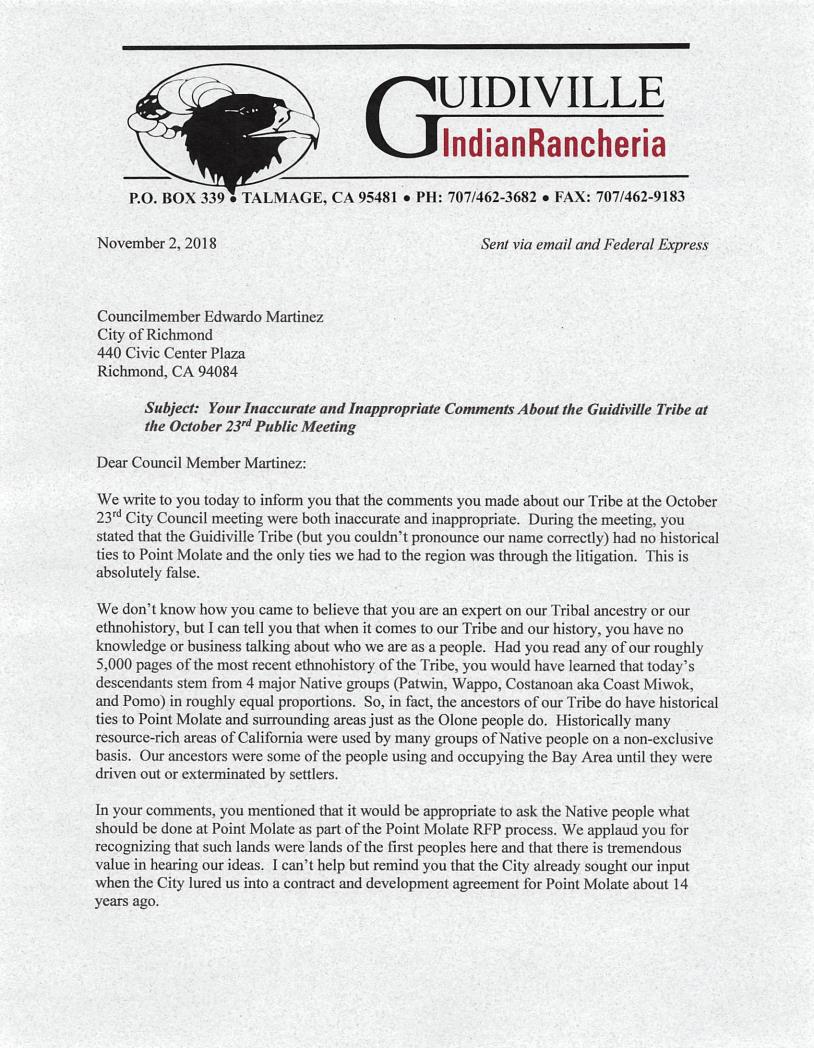
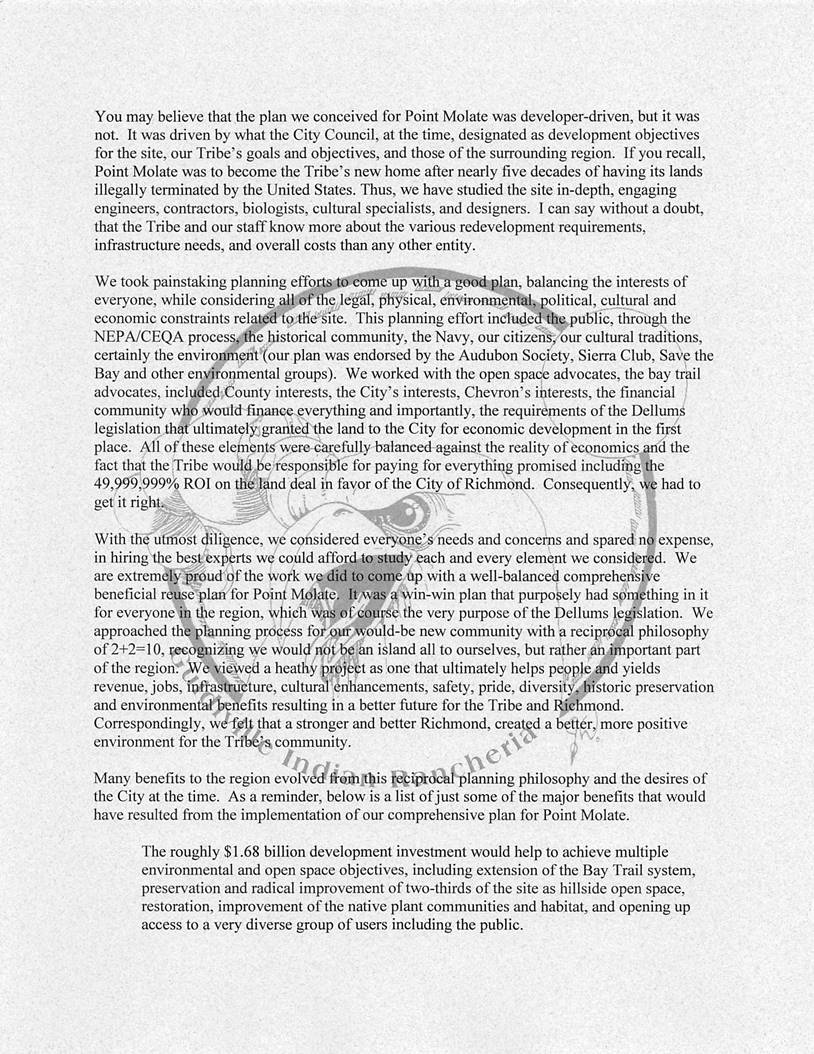
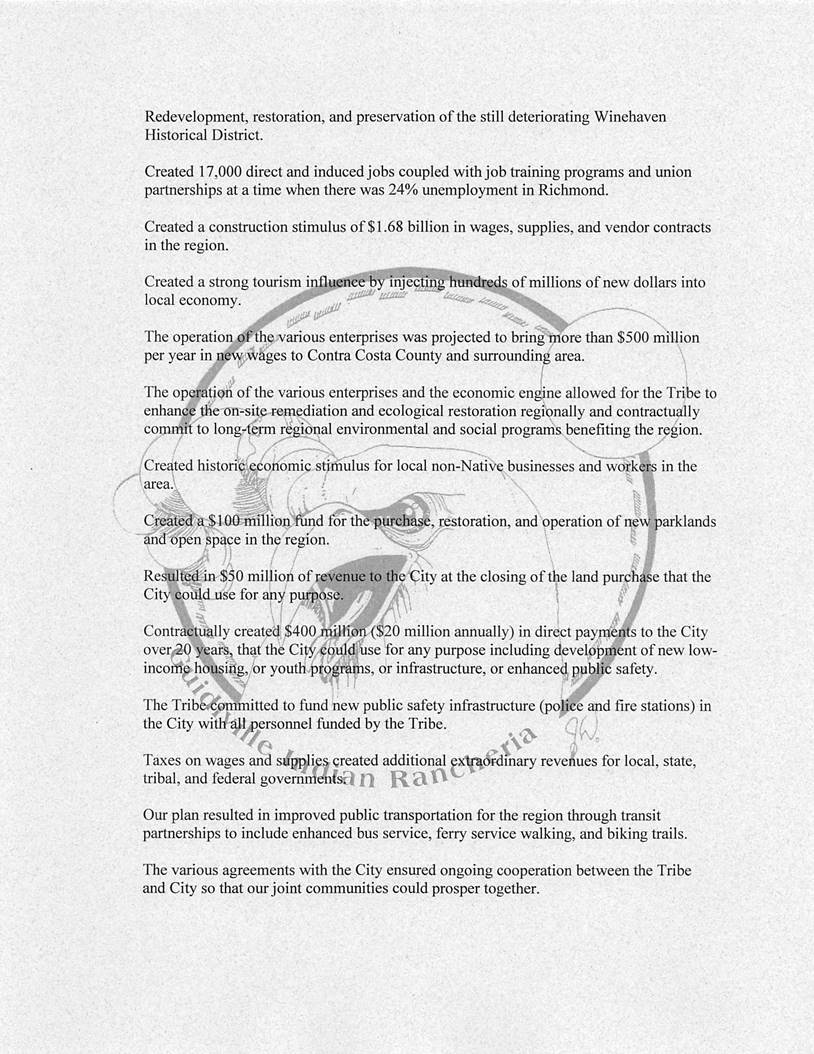
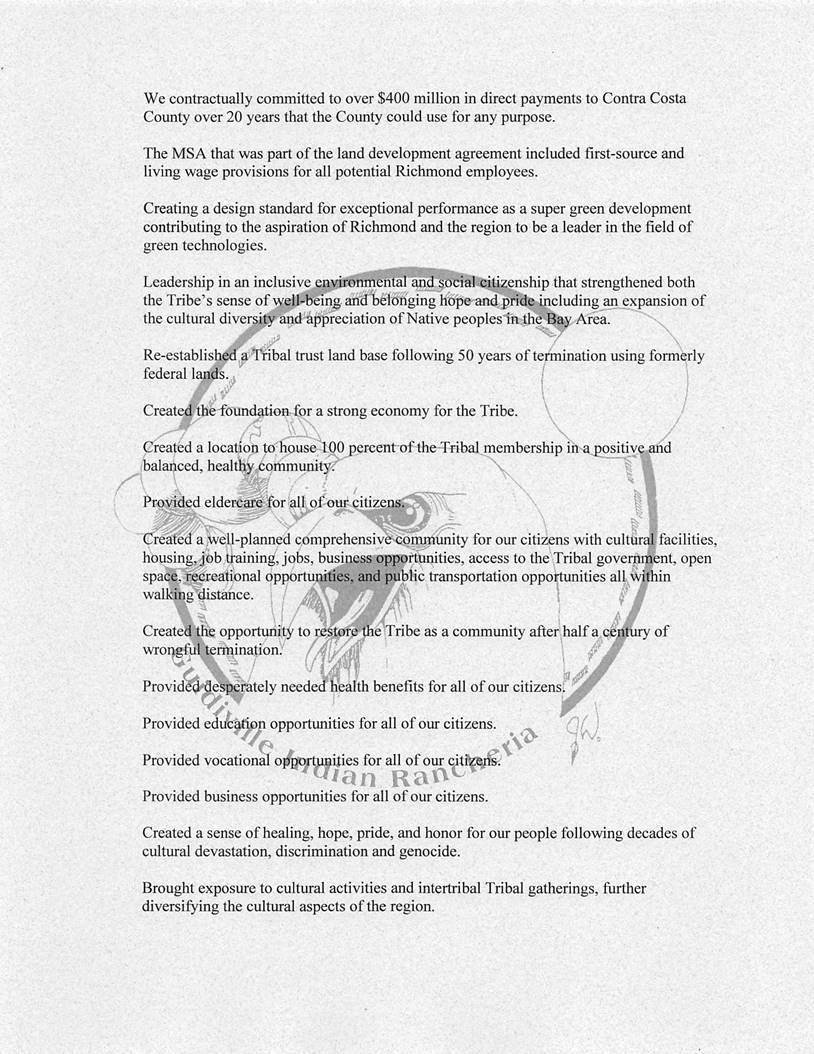
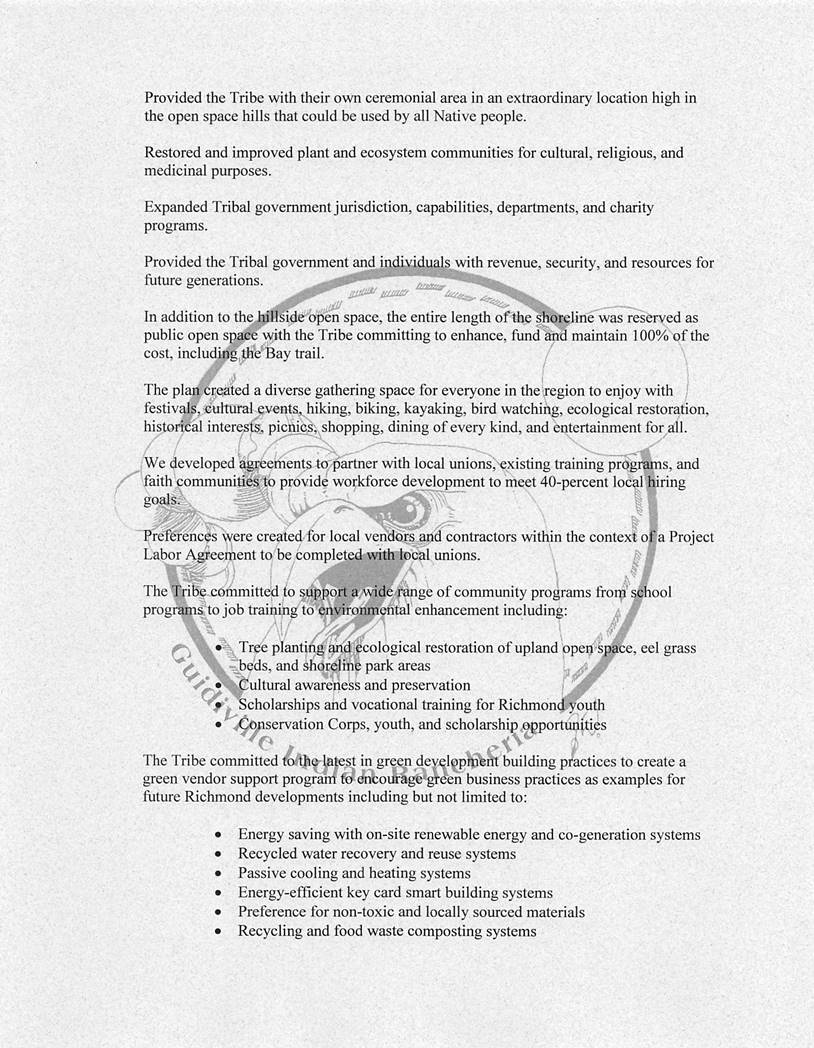
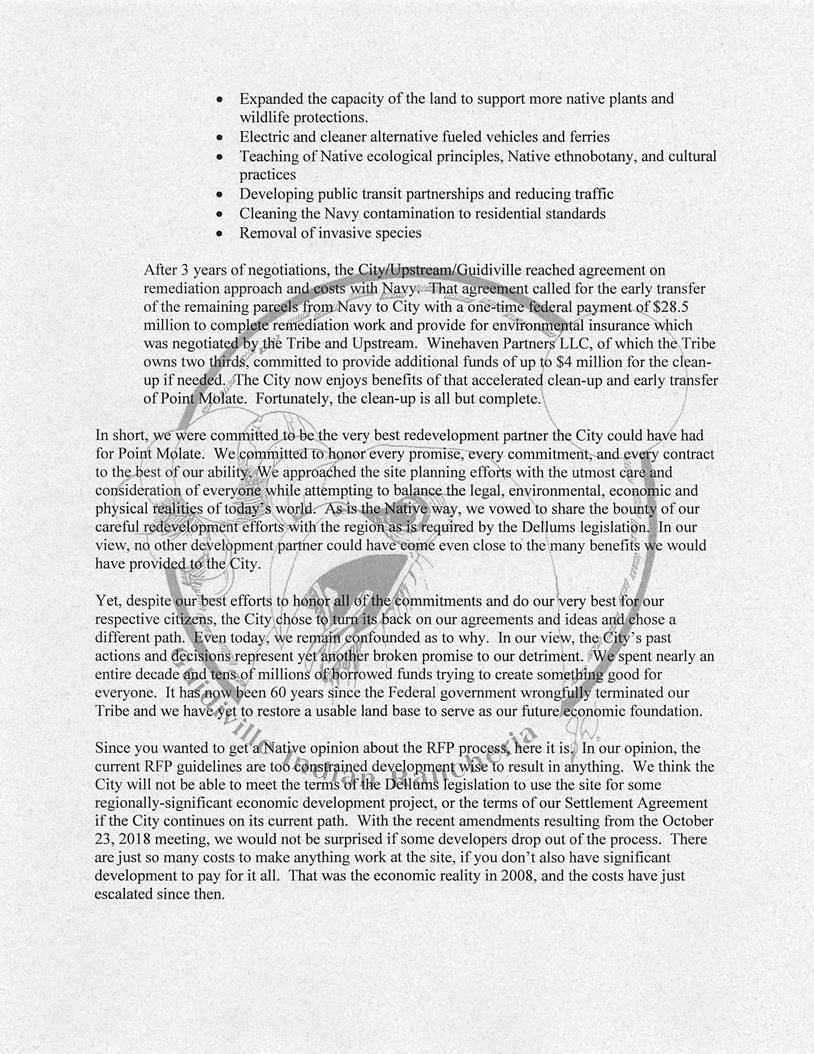
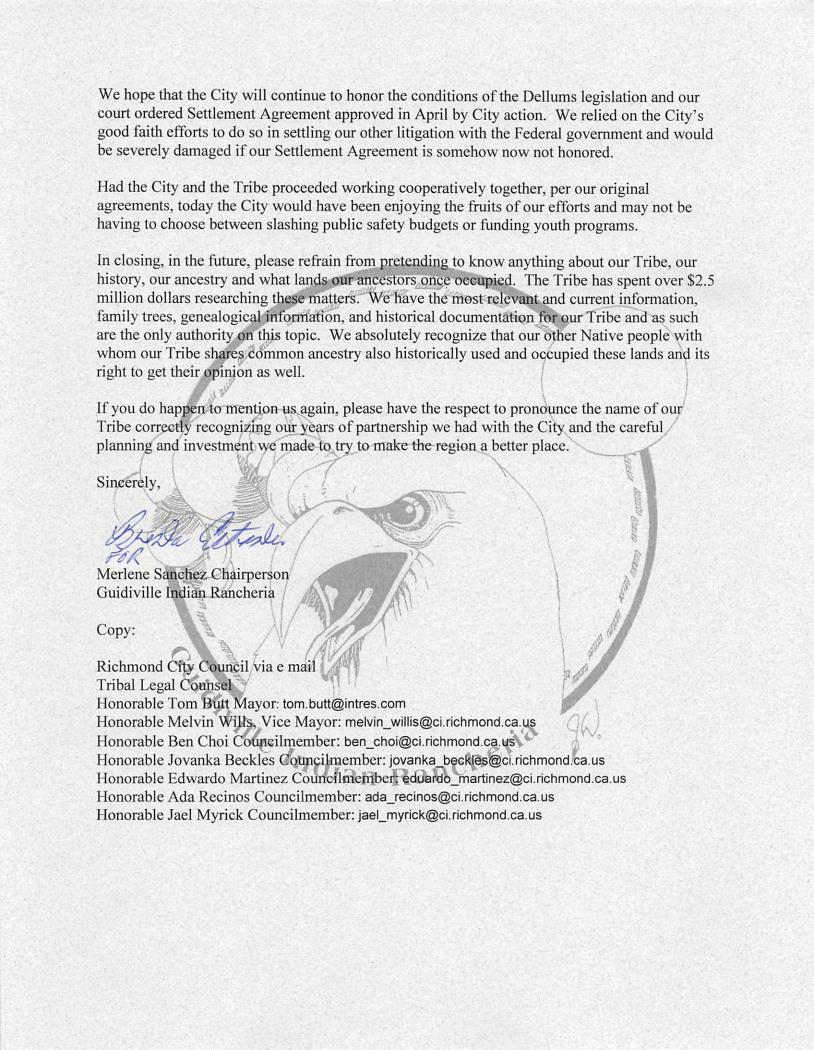
Could restrictions scare off potential developers of Richmond’s Point Molate?
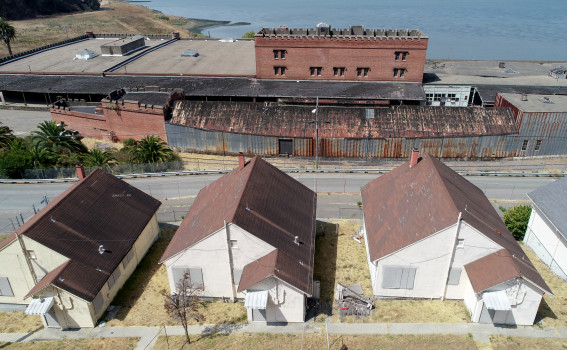
The main building and former Naval officer’s homes, foreground, are seen from this drone view at Winehaven in Richmond, Calif., on Monday, Aug. 14, 2018. Winehaven was the world’s largest winery from 1906-1919, and then became a fuel depot for the U.S. Navy. The city is in the process of selling the Point Molate property to developers. (Jane Tyska/Bay Area News Group)
By Ali Tadayon | atadayon@bayareanewsgroup.com | Bay Area News Group
November 3, 2018 at 6:23 am
RICHMOND — With the clock ticking for Richmond to sell the 270-acre Point Molate waterfront property so it can be developed into a community of at least 670 housing units, some City Council members fear restrictions tied to the project could scare off developers.
Six developers are currently bidding for the project and will pitch their plans to the council in December. The council in turn has a deadline of April 2020 to approve a plan to build on 30 percent of the site and leave 70 percent as open space. That’s according to the terms of a lawsuit settlement the city reached with the Guidiville Rancheria of California Indian Tribe and Upsteam Point Molate LLC. Guidiville and Upsteam, sued the city after the council denied their plan to build a casino there.
If the city misses its deadline to approve a development plan, it must sell the land back to Guidiville and Upsteam — virtually for pennies.
The council last month approved guidelines for ranking developers’ proposals and, following a heated discussion, decided to limit the area where housing can go to the historic Winehaven District and some surrounding parts. It also decided developers must aim to make two-thirds of the units affordable and cover all associated infrastructure costs.
Council members Jael Myrick, Ben Choi, Ada Recinos and Eduardo Martinez voted for the requirements and Mayor Tom Butt and council member Jovanka Beckles dissented while council member Melvin Willis abstained.
Butt called the requirements “about the dumbest thing (he’s) ever seen a city council do in the city of Richmond.”
“You all are incredibly irresponsible,” Butt said. “We settle one lawsuit, got another one, and now you’ve essentially drawn a plan that is not economically feasible. We’re going to get Upstream and the tribe back on our case, they’re going to sue us. I mean, this thing is never going to end.”
Martinez disagreed.
“In the design classes that I’ve taken, I’ve found that the more restrictions, the more creative the solutions,” Martinez said. “If we have the kind of developers that we want to attract to Richmond, we should give them the restriction that we, as a city, expect, and see what kind of creativity they have.”
Butt said those who voted for the requirements did so mainly to please a small group of people who have been fighting against development at Point Molate and have accused the city of entering into the settlement agreement improperly behind closed doors.
Choi said that although people may disagree with the lawsuit settlement, the city would have had to spend a lot of money if it didn’t accept it. Not to follow the terms now would be disastrous, Choi added.
“At a minimum it’s tens of millions of dollars that the city doesn’t have if we completely abrogate the settlement, and if we’re putting on the table a deal that is not feasible we might as well just abrogate the settlement,” Choi said.
In addition to approving the set of guidelines for ranking the development proposals, the council also voted to include a “community plan” compiled by the Point Molate Alliance — a group of people opposed to a housing development at Point Molate — that calls for most of the property to be used as an open space park and for housing to be built closer to downtown.
|

